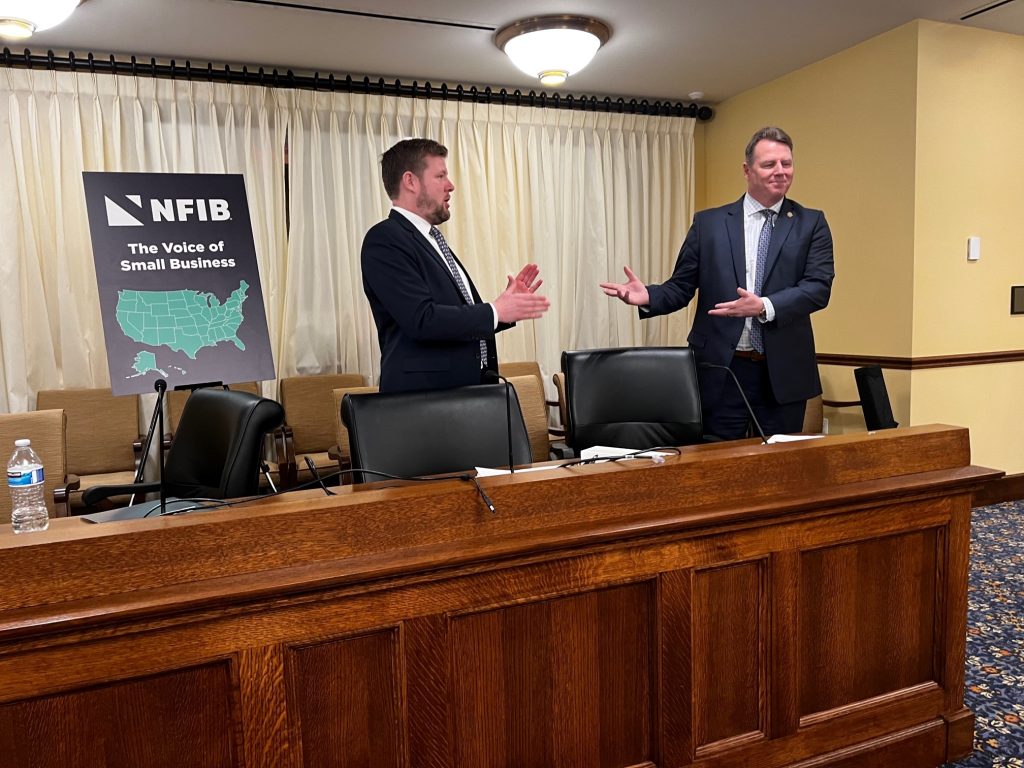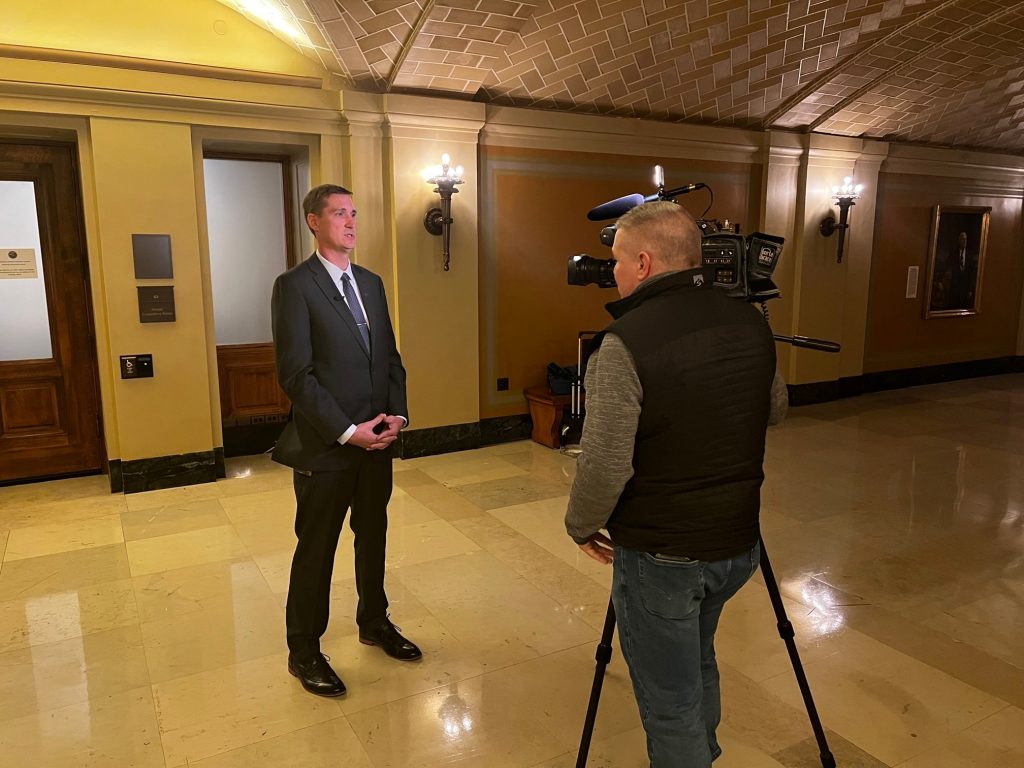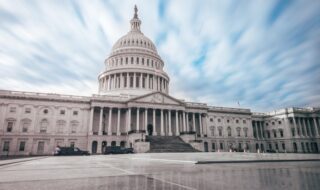Topics:
March 13, 2023
Minnesota Legislators Listen to Small Business Stories
Minnesota Small Business Day 2023: Small Business Owners Voice Concerns With Paid Leave Mandate

Minnesota small business owners were passionate about making their voices heard at this year’s Small Business Day at the Capitol. State Director John Reynolds and Sen. Nick Frentz talk about how the 24 week paid leave mandate will impact entrepreneurs and their employees.
Frentz underscored the importance of hearing from small business owners and expressed hope that lawmakers could find a solution that would not be onerous for Main Street. The PFML proposal is funded by a $1 billion payroll tax on small businesses and workers and requires businesses of all sizes to allow up to 24 weeks of paid leave per year. Earlier this year, NFIB launched its statewide issue campaign to Stop St. Paul’s Billion Dollar Tax Hike on Small Businesses. You can find out more about the proposal here. Leadership Council member David Heinrich of Thermal Dynamics based out of Maple Plain. His small business is a water systems company that designs geothermal technology. Heinrich to members of the media about his concerns with the proposed legislation. Heinrich questions why politicians are pushing another burden on the backs of small business owners when Minnesota has a $17.6 billion surplus. “No small business can go without their skilled employees for six months. We need to shorten the horizon of this program and minimize the costs, particularly the immediate costs it would place on both employers and employees alike,” said Henrich.
NFIB members have made their voices clear: they are 100% against this new tax and mandate. Minnesota already has a chronic worker shortage. According to NFIB data, 41% of small business owners have long-term job vacancies they cannot fill and 92% have few or no qualified applicants.
NFIB is also running statewide radio ad campaign to educate Minnesotans about this harmful proposal. You can listen to the radio ad here.
Minnesota has a $17.6 billion surplus, so why are politicians pushing another burden on the shoulders of small business and workers? The new $1 billion payroll tax will make life even hard on Main Street: the average small business with 10 employees will face a $3,000 per year tax hike – and that’s just to start.
Here’s what you need to know about this scheme:
“No small business can go without their skilled employees for six months. We need to shorten the horizon of this program and minimize the costs, particularly the immediate costs it would place on both employers and employees alike,” said Henrich.
NFIB members have made their voices clear: they are 100% against this new tax and mandate. Minnesota already has a chronic worker shortage. According to NFIB data, 41% of small business owners have long-term job vacancies they cannot fill and 92% have few or no qualified applicants.
NFIB is also running statewide radio ad campaign to educate Minnesotans about this harmful proposal. You can listen to the radio ad here.
Minnesota has a $17.6 billion surplus, so why are politicians pushing another burden on the shoulders of small business and workers? The new $1 billion payroll tax will make life even hard on Main Street: the average small business with 10 employees will face a $3,000 per year tax hike – and that’s just to start.
Here’s what you need to know about this scheme:
- $1 Billion Payroll Tax on small businesses, family farms and more.
- As the cost of the new government-run program grows, so will the payroll tax! Another state’s paycheck tax doubled in just three years.
- Mandates that small businesses allow all employees to take almost 6 months off per year for a wide range of circumstances.
- Sets up a massive new bureaucracy with 300-400 government employees and a $50 million annual budget.
- Upends the salary and benefit arrangement for every small business employee, making it harder for them to offer customized compensation plans to attract new employees.
State:
Get to know NFIB
NFIB is a member-driven organization advocating on behalf of small and independent businesses nationwide.
Related Articles

July 1, 2025
ICYMI: NFIB Georgia Director On Why Congress Needs to Make the…
Congress is voting on the legislation that includes the measure this week.
Read More


June 30, 2025
What Happened in Phoenix for Arizona Small Business Owners Duri…
A look at the small business victories achieved during the 2025 Arizona Leg…
Read More


June 27, 2025
2025 Minnesota Legislative Session Recap
Here’s what passed and what didn’t during the 2025 Minnesota Legislative…
Read More


June 25, 2025
RSVP: Let’s Discuss the Minnesota Legislative Session
Join us virtually on July 9th to discuss everything that happened during th…
Read More







